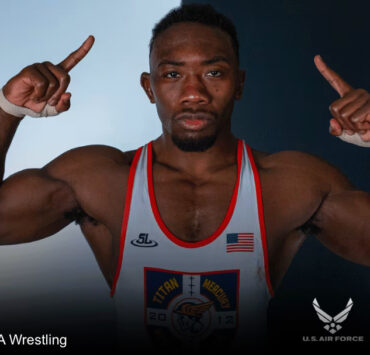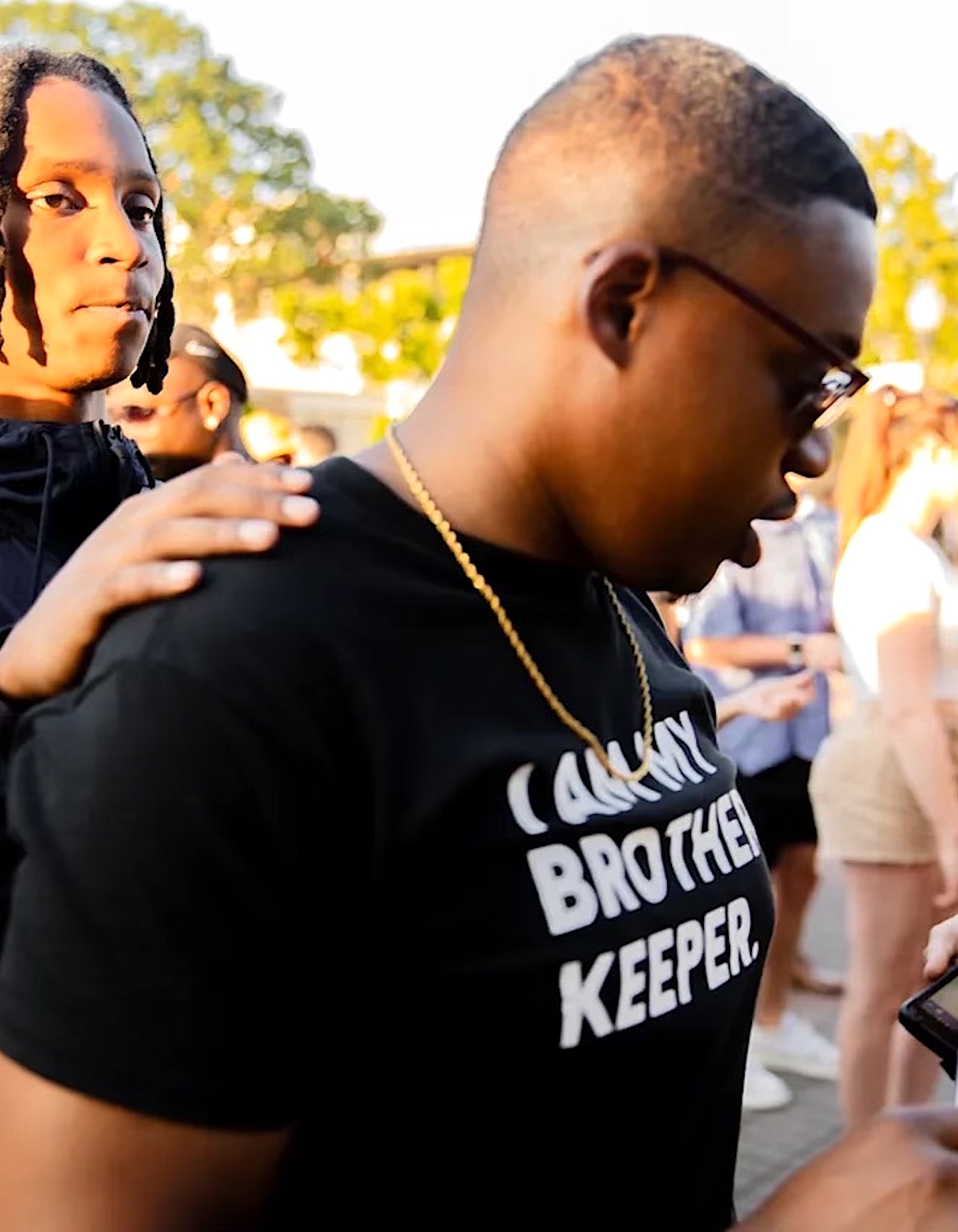
LOCAL & STATE
Deon Osborne
Photo Courtesy of My Brother’s Keeper
My Brother’s Keeper-Tulsa, an organization focused on improving outcomes for boys and young men of color, has launched a new initiative to expand reading opportunities. The Books in Barbershops program comes a year after MBK-Tulsa was designated a “model community” by the Obama Foundation.
MBK kicked off the endeavor last month at Precision Pro Style Barber Beauty Salon at 1612 N. Lewis Ave. MBK-Tulsa’s Books in Barbershops is a community-centric program. Instead of bussing underserved kids to mentors miles away, it connects children with resources and mentors inside their communities.
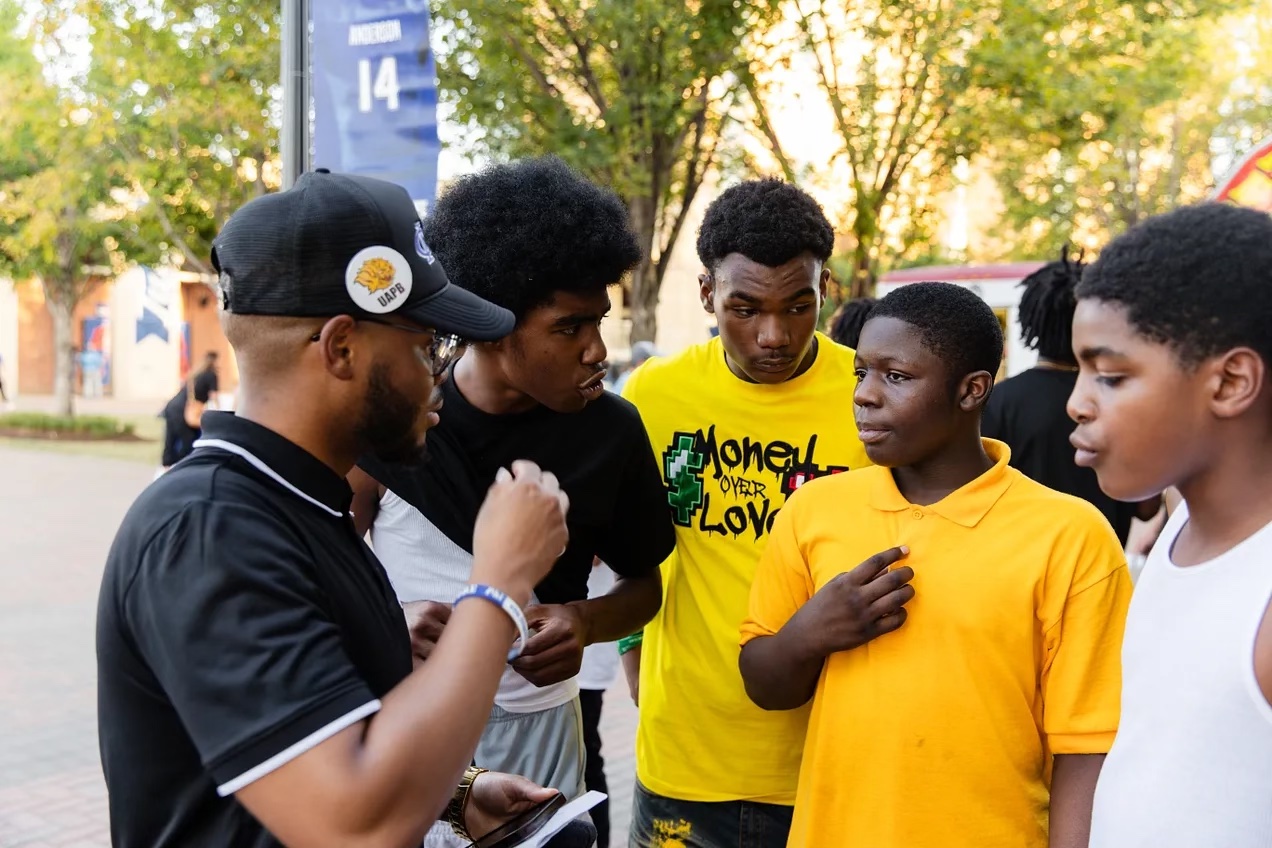
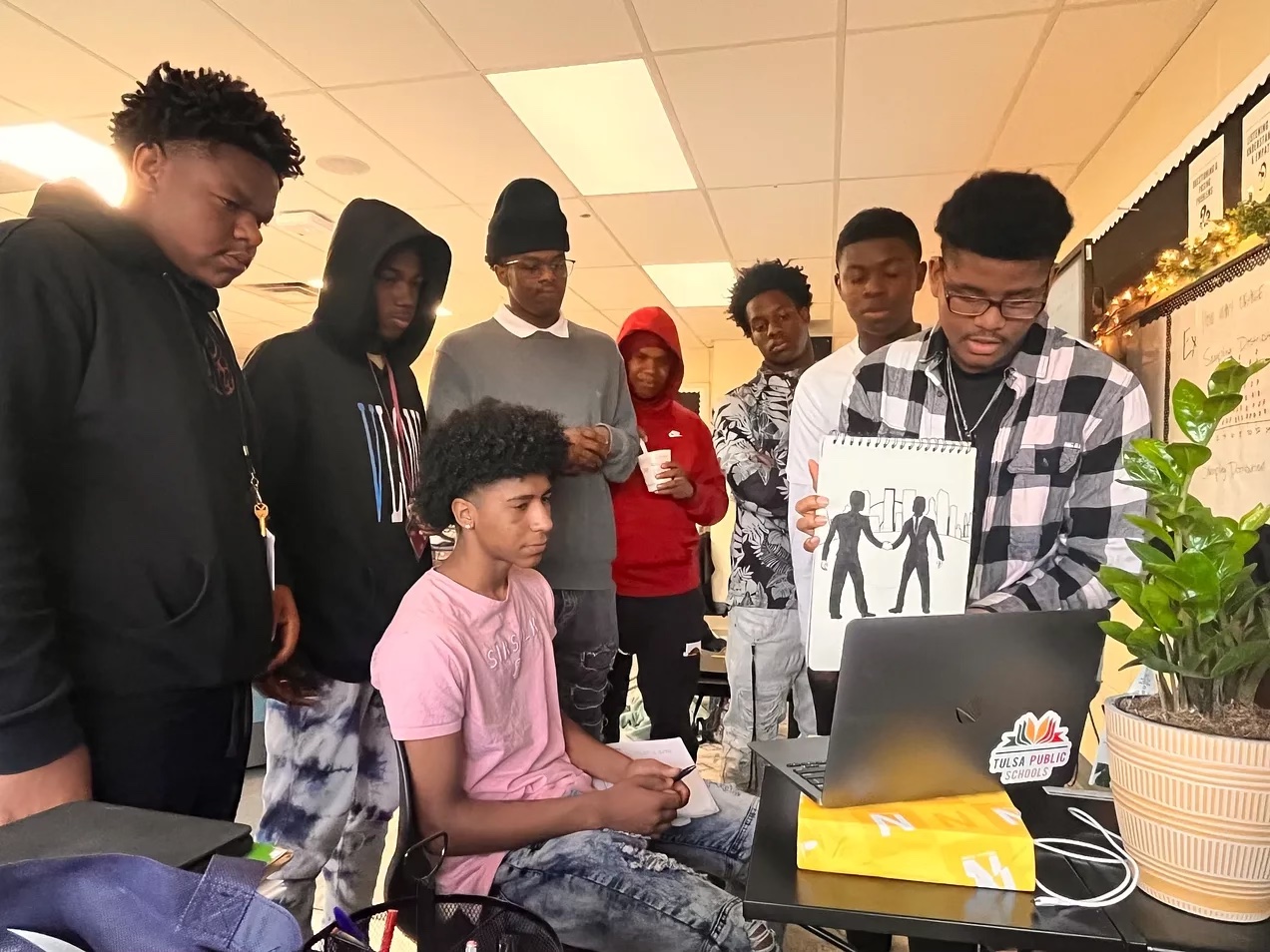
“The large-scale piece of our work is exposure. How do we expose students to culturally relevant reading material that can help them foster a love for reading,” MBK-Tulsa Manager of Strategy, Development, and Implementation Kendall Rimmer said in an interview.
MBK-Tulsa sponsors several programs. In one partnership with the Professional Golf Association, they engaged in discussions between professionals and north Tulsa youth about career opportunities. Over the last year, hundreds of Tulsa students participated in MBK-Tulsa activities.
MBK-Tulsa leaders say they seek to transform the future of north Tulsa, a community that is only a few generations removed from the racial terror of the 1921 Tulsa Race Massacre in the historic Greenwood District. Rimmer said some students in the programs are descendants of survivors of the massacre. Some may carry the intergenerational trauma that many descendants have reported. Such trauma can manifest itself in destructive ways.
A 2017 study published in the American Sociological Review found that the more community-based programs a city has, the lower the crime rate.
MBK-Tulsa joins several other organizations and initiatives in north Tulsa that are working to impact the lives of boys and young men of color.
For instance, 100 Black Men of Tulsa has been a leading pipeline for mentorship and education over the last 30 years. The Dream Center, a cultural and philanthropic hub for historically Black north Tulsa, has been working to disrupt cycles of poverty and heal generational trauma.
Oasis Fresh Market, the first Black-owned grocery store in north Tulsa in decades, goes beyond serving fresh food. It offers programs ranging from free lunch and breakfast for kids during the summer to holiday giveaways and celebrations to subsidizing the cost of food items for low-income shoppers.
Together, these Black-led organizations are creating an ecosystem of empowerment for the next generation of Greenwood leaders.
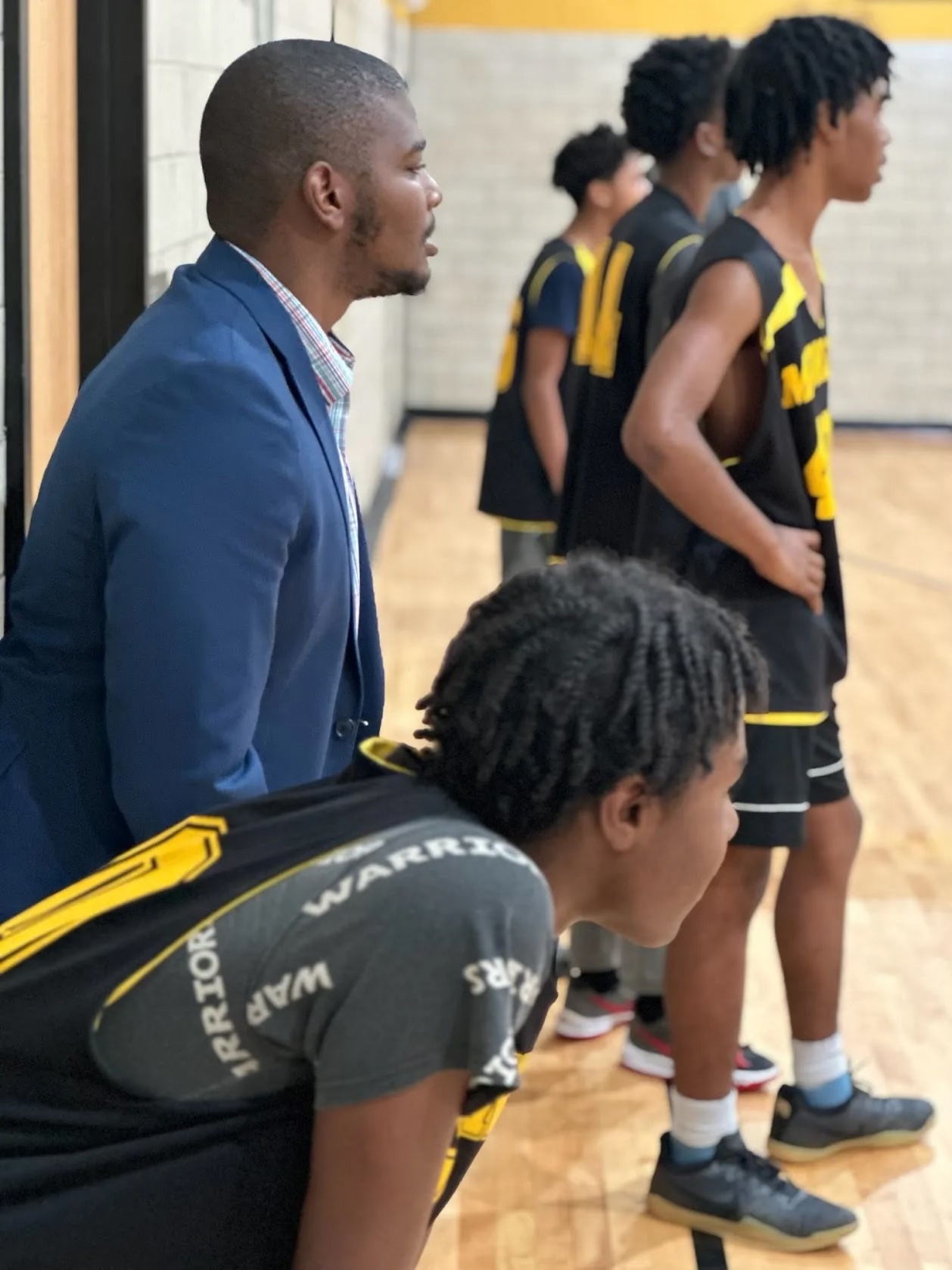
A mission to improve outcomes
MBK-Tulsa is not focused on simply avoiding the negative results of trauma and neglect. The organization aims to create systems change, paving a path where communities work together to improve outcomes.
In its Books in Barbershops program, the non-profit has teamed up with Reading Partners Tulsa. Together, the goal is to see books in every barbershop.
“We say reading is a civil right. So, if anything is prohibiting any child from accessing the support they need before they reach fourth grade, we want to fill that gap,” Reading Partners Tulsa Executive Director Olivia Martin said in an interview.
As a program that delivers hour-long reading mentors to underserved students across the city, Martin said her organization fully aligns with MBK-Tulsa’s goals for student outcomes. Reading Partners Tulsa will work to ensure the books north Tulsa students read at the barbershop reflect their culture, even as state leaders seek to minimize Black history from textbooks.
“We care greatly about racial equity, diversity, and inclusion at Reading Partners. So our books reflect everyone’s background, everyone’s experience, everyone’s names, and their cultural space,” Martin said.
Evidence-based solutions
Housed in the offices of ImpactTulsa, MBK-Tulsa is one of over 250 My Brother’s Keeper Alliance communities nationwide. Former President Barack Obama’s foundation established the MBK Alliance in 2014, with over 250 chapters nationwide.
On May 10, 2023, Obama recognized the resilient spirit of Tulsa’s program as one of just four “model communities” across its hundreds of chapters. The prestigious designation came with an $800,000 grant to support direct coaching and peer-to-peer learning.
Recognized for helping students enter school ready to learn, MBK-Tulsa satisfied the first of six milestones that predict success.
From merging sports with mentorship to hosting listening sessions and case studies, Rimmer said MBK-Tulsa is not trying to reinvent the wheel. The team is taking proven solutions that have worked elsewhere and tailoring them to the unique culture of Tulsa’s diverse communities.
“All of the work we do is rooted in evidence-based strategies that have happened nationally,” Rimmer said.
With barbers being natural mentors in the Black community, partnering with them to expand reading opportunities for overlooked young men with melanin was a no-brainer.
“We know barbers act as mentors. We know barbers act as father figures. If you walk in that shop, and a barber is reading a book while they wait for you to come sit down, that’s a positive image that can be stuck in a Black boy’s mind forever,” Rimmer said.
Stressing the importance of seeing other Black youth and adults reading a book inside a barbershop, the community’s cultural hub, Rimmer said it is about finding creative ways to overcome the daunting data.
For instance, low literacy skills make one more likely to face arrest, and Black high school dropouts face a 70 percent chance of being imprisoned by their mid-30s, according to a policy memo from the Hamilton Project. Meanwhile, MBK-Tulsa uses evidence-based solutions to push those trends in the other direction.
“There’s a much larger chance that students will be proficient in reading if they’re exposed to 20 minutes of reading a day between pre-K and third grade,” Rimmer explained.
Paving a New Path
Stale statistics around education, poverty, and crime provide a snapshot into the issues impacting boys and young men of color. Still, My Brother’s Keeper-Tulsa leaders are on a mission to paint a fuller picture.
Over 160 students participated in MBK Sports and MBK Youth All-Stars programs. By connecting students with real-world athletes who came from their communities and exposing them to different kinds of jobs in the sports industry, MBK-Tulsa is expanding instead of limiting the possibilities for students who often grow up believing becoming an athlete is their only option. One trip to the Dallas Cowboys facility resulted in an eye-opening moment for the students.
“When you see a Black man walking around the Cowboys facility in a suit, and he tells you, ‘I make X $100,000 a year doing this,’ something they never thought existed, they’re like, ‘wait, what,” Rimmer told the Black Record blog.
“We got to see a lot of young Black men actively participating in the space that encourages them to be vulnerable with each other,” he said. “Where I’m like, whoa, they’re in here crying with each other. They’re in here pouring their souls out.”
As MBK-Tulsa continues to forge partnerships and pursue policy proposals to transform the city, the organization’s impact over the last year reverberates throughout a community still healing from decades of disenfranchisement. For all the trauma soaked into the soil, however, MBK-Tulsa and partner organizations are focused on the triumphs they can achieve together.
Barbers interested in partnering with MBK-Tulsa’s Books in Barbershop initiative can email kendall@impacttulsa.com.
If you want to volunteer with Reading Partners Tulsa, visit its website.
Deon Osborne is an Oklahoma-based freelance writer who reports on the Black community. This article originally appeared in his blog, Black Record, featured on Substack.









